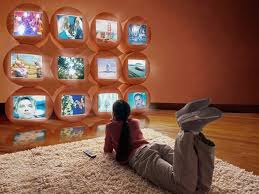On the surface Internet living seems to bring a great deal of freedom to many different parties. Last month for example I posted from the USA, Italy and the UK, we can work from home, buy direct and have access to all kinds of information.
This might make us feel that the web itself creates freedom, or that it is free to operate as we wish. I am not so sure that this is the whole story however, and others agree.
Last week Security technologist Bruce Schneier gave a talk as part of the TEDx Cambridge series. Schneider is very interested in security and perceptions of security as this previous TED video shows, but last week’s talk was different.
He took the problem of Internet freedom as his topic, and raised some very interesting arguments. The following quotes are taken from his speech as reported on our local Boston.com website:
“Which type of power dominates the coming decades? Right now it looks like traditional power. It’s much easier for the NSA to spy on everyone than it is for anyone to maintain privacy. China has an easier time blocking content than its citizens have getting around those blocks.”
We can see that there is some evidence to support this case, if we look at this article that appeared in the Huffington Post a couple of years ago. It recounts the tale of Google pulling out of China because they no longer wanted to censor their searches. Google chose to redirect users to their non censored search engine based in Hong Kong. The Chinese government managed to block the results anyway, so users were left in the same position as before, no access to the information.
If we take a broader look though we find that it is not just China but other countries that are making repeated requests for Google to censor their content. CNN report the revelations of the recent Google Transparency report, where Canada, France, the UK and the USA feature strongly in the league of requested censorship. The report is here, easy to follow and a 5 minute thumb through might change your ideas regarding freedom and regulation on the web.
Just yesterday Linkedin announced that they challenging the US government over data requests. US organizations are allowed to publish the total number of data requests, but cannot break the figure down to reveal the number made by security services. Linkedin say this legal situation makes no sense, and many other companies agree. Read about it here.
“Cyber criminals can rob more people more quickly than real-world criminals, digital pirates can make more copies of more movies more quickly than their analog ancestors. And we’ll see it in the future. 3D printers mean control debates are soon going to involve guns and not movies.”
Just this week The Independent ran a story about Europe’s criminal intelligence agency that is fighting unprecedented levels of crime across several fronts as gangs capitalise on new technology. We are not talking about a few individuals hacking into the odd bank account here and there, we are looking at the new form of organized crime. A multi billion dollar industry in Europe alone.
The gun reference is of course to the distribution of plans for a 3D printer manufactured gun. Read about it here.
Much has been written about how Facebook and other interfaces have the power to democratize society, and their potential to promote revolution. The so-called Arab Spring is often given as an example, but as well as dissidents using Facebook to organize protests, the Syrian and other governments also used Facebook to identify and arrest dissidents.
There are plenty of examples. Here is an article about 3 Moroccan activists who were arrested for their comments criticizing governments at that time. One used a Wikileaks type platform, another Facebook and the third Youtube. They were all arrested and charged with various and sometimes unrelated crimes.
I wonder where they are now?



